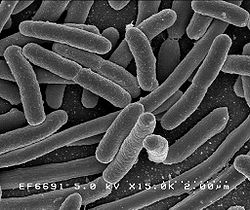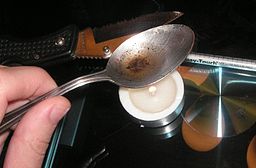Morphine is an opiate (derived from opium) painkiller, one commonly prescribed for chronic (long-term) and acute (short-term) pain. The current process for making morphine is very extensive and requires farming opium poppies for their poppy straws, from which the morphine is isolated. Morphine is on the Model List of Essential Medicines, formed by the World Health Organization (WHO), which comprise the most important medications for a basic health-care system. Morphine is also used to make other opioids such as oxycodone and methadone.
Escherichia coli (E. coli) is a bacterium commonly known for causing food poisoning. Although some E. coli are beneficial and live in our gut, there are many that can cause infections. As the energy-producing processes of these bacteria were similar to the processes involved in making opiates such as morphine, a team of researchers wondered if they could use E. coli to convert sugar into painkillers.
The study, which was published in Nature Communications, was centered around using E. coli to create a precursor to morphine known as thebaine. A precursor is a substance that is used to produce the next substance; thus, thebaine is used to produce morphine. The researchers accomplished this by using four engineered strains of E. coli.
This research has significant implications because of the time it currently takes to produce painkillers. Many poor countries have limited access to opioids, or no access at all. Other production techniques, such as using genetically engineered yeast to produce painkillers, are not efficient enough to challenge tradition opium poppy farming. By using E. coli, the researchers were able to produce 300 times more of the opioid precursor. Another benefit in using bacteria for the production of opioids is that it would only require simple sugars, such as glucose. The yeast production method also faced ethical issues, as anyone that had access to the yeast strain could produce the opioids, leading to the production of street drugs. The E. coli method does not face this problem as the bacteria are difficult to manage and require expert handling.
Once the technique has improved further to increase its efficiency and passed all pharmaceutical regulations, the manufacturing of opioids from bacteria could help solve the deficit in painkillers that the world faces.
Kush Khanna



